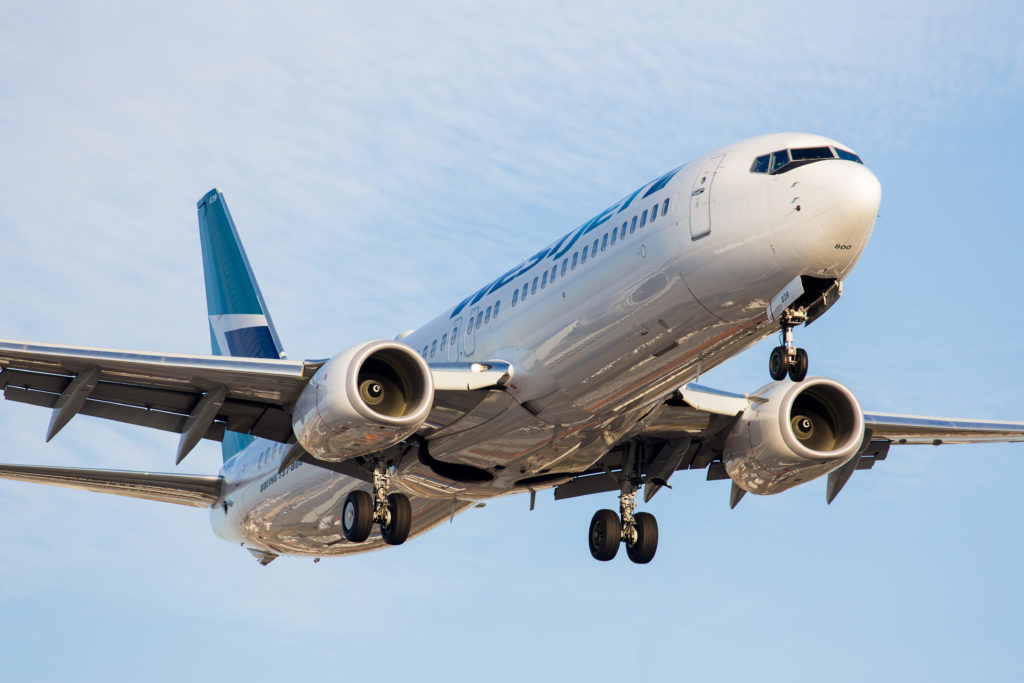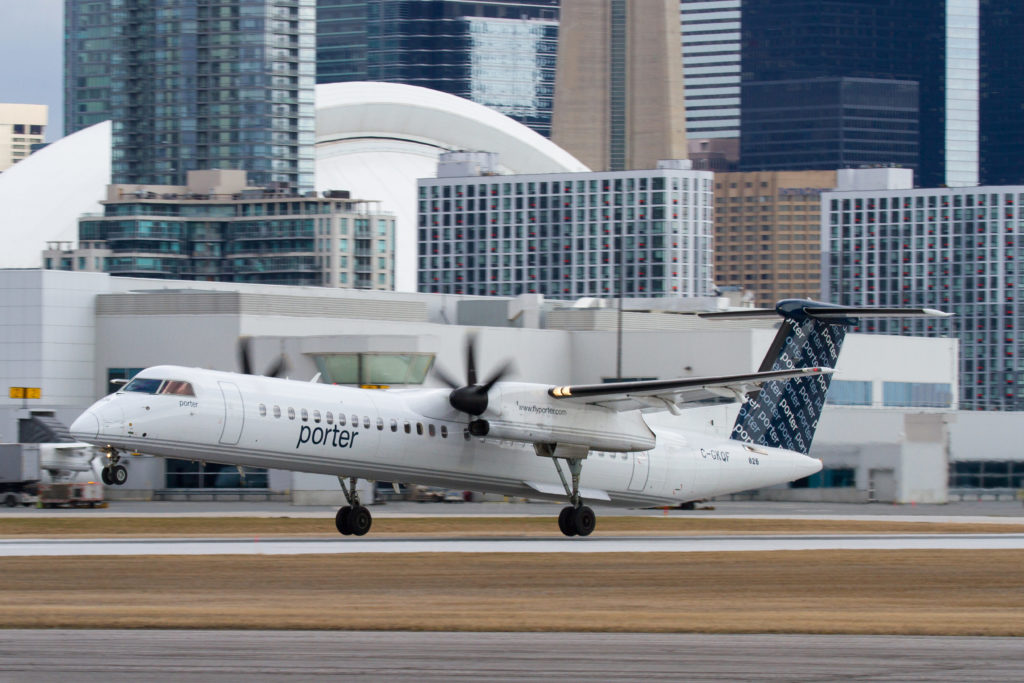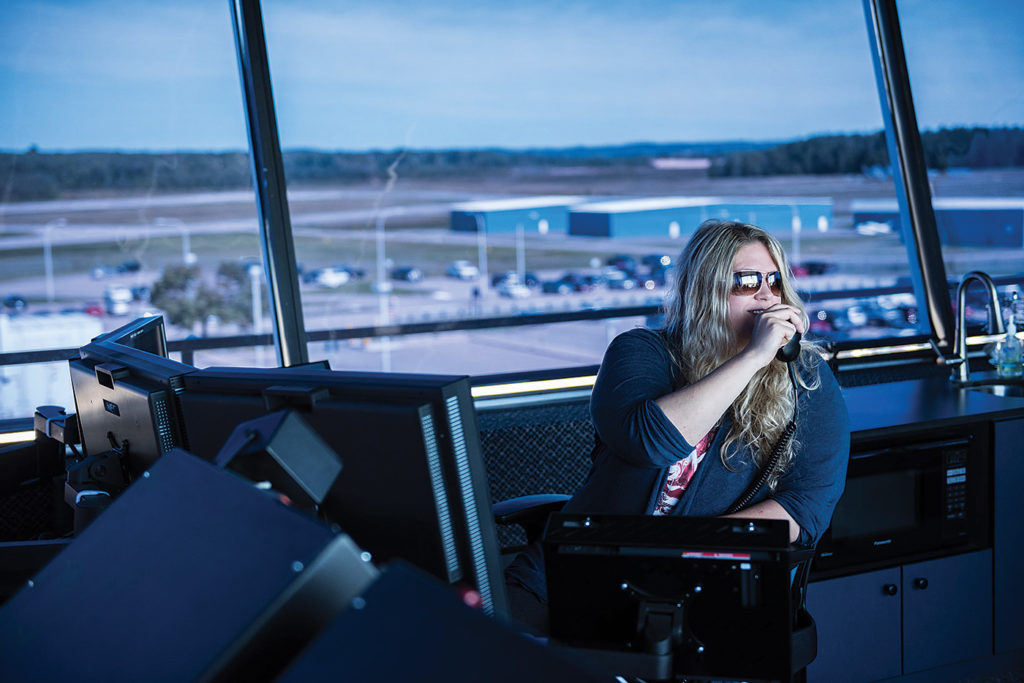Estimated reading time 8 minutes, 26 seconds.
The Canadian government on Nov. 30 released a fiscal update with new aid to help regional air carriers and airports through the COVID-19 crisis, but has left out plans for the nation’s major airlines.
Outlined in Canada’s Fall Economic Statement 2020, released by finance minister and Deputy Prime Minister Chrystia Freeland, the federal government is offering $1.2 billion for regional airlines, airports, and airport infrastructure. Major airlines have been in talks with the government about more aid for the past several months, and are still waiting to receive the support they require — as the country has lost 85 per cent of its air connectivity.

“While other countries around the world moved forward months ago to provide sectoral support for airlines, Canada remains a global outlier and is ostensibly stuck at Stage Zero on the government planning process,” said Mike McNaney, president and CEO of the National Airlines Council of Canada (NACC), representing Air Canada, Air Transat, Jazz Aviation LP, and WestJet.
“Governments around the world have provided their domestic aviation sectors approximately US$173 billion in support, precisely because a healthy aviation industry is critical to overall economic recovery,” added McNaney.
In mid-October, WestJet announced it was pulling back from Atlantic Canada starting Nov. 2, suspending operations to Moncton, Fredericton, Sydney, and Charlottetown, as well as operations to Quebec City, and removed its Toronto service. The suspended operations to the Atlantic region eliminated more than 100 flights weekly. This announcement was one example of the impact COVID-19 has had on airlines.
In its economic update, the federal government did announce a boost to the wage subsidy due to the “ferocity of the second wave,” which would cover 75 per cent of employees’ wages — up from the current maximum of 65 per cent.
But Air Transport Association of Canada president, John McKenna, said the subsidy will not pay off the airlines’ debt — from purchasing aircraft, equipment, hangar space, etc., with little revenue to compensate — according to a report from CBC.
Industry members have also expressed that while Canada’s air sector did receive direct attention in the fall economic update, the support announced falls “short of what Canada’s airports and our industry partners need to endure COVID-19,” the Canadian Airports Council said in a statement.
The government has pledged $206 million over two years to support regional air transportation, including regional air carriers, but “has yet to provide details of the new Regional Air Transportation Initiative and how such an initiative will, in practice, support the continued existence of regional air services,” said McNaney.
Porter Airlines, a regional airline based at Billy Bishop Toronto City Airport, has halted operations since March 21 due to the pandemic, and the airline has pushed out its re-start date several times. The airline’s latest announcement stated its planned re-start date has been adjusted to Feb. 11 — which will mark nearly a year of not operating.
Canada’s airports, of all sizes, will receive additional support as outlined in the fall economic update.

Small and regional airports will receive additional funding of $186 million over two years, starting in 2021, and rent payments will be waived for the next three years for airports with passenger volumes of less than one million in 2019.
Large airports, many of which have been investing in safety, security, and transit infrastructure, will receive $500 million from the government over six years, starting in 2020-21, “to establish a new transfer payment program,” the economic statement reads. “Transit projects at large airports, such as the new Réseau express métropolitain station at the Montreal Airport, will be eligible for funding.” Rent payments for airports with passenger volumes between one million and 10 million in 2019 will be waived for 2021.
In support of Canada’s major airports, the government pledges to extend $229 million in additional rent relief to the 21 airport authorities that pay rent to the federal government, with comparable treatment for Ports Toronto, which operates Billy Bishop Airport. “This support to airports would be made up of repayable and non-repayable rent relief, with non-repayable support costing $29 million over four years, starting 2020-21,” the economic statement reads. Rent payments will be deferred for Canada’s largest airports for 2021, and re-payment would occur over 10 years starting in 2024.
Airport authorities will also receive an additional $65 million in financial support in 2021-22.
The economic update left out details on funding for air navigation service providers — like Nav Canada, which warned in late November that layoffs are coming — to prevent them from increasing fees for airlines.
Quebec’s Aéro Montréal was hoping there would be support announced for aerospace manufacturing companies, as there is concern for “the exodus of our qualified workforce,” but such details were also left out of the fiscal update.
As well, there were no plans outlined for COVID-19 testing at airports. “We have three to four months to get it right if Canada is to participate in the recovery of global tourism we expect to see start in other northern countries next summer,” the Canadian Airports Council said.
NACC’s McNaney added: “We need the federal government to rapidly move forward with a clear and effective testing regime at airports to support the continued safe restart of the sector and address border and travel restrictions.”
A large concern still remains with a bailout package for Canada’s major airlines, which key industry players have expressed is overdue. “We acknowledge the limited support for airlines and the wage subsidy increase during this initial phase. However, we are disappointed with the lack of recognition of the severity of the challenges we are facing,” said Jim Quick, president and CEO of the Aerospace Industries Association of Canada.
“Although many in political leadership have advised us that support is coming, we are nonetheless disappointed that it is taking so long.”

In early November, the government announced conditions for an aid package for airlines, including that airlines must refund passengers for cancelled flights.
“Before we spend one penny of taxpayer money on airlines, we will ensure Canadians get their refunds,” said Transport Minister Marc Garneau in a Nov. 8 press release.
NACC’s McNaney said the federal government has continued to state it is still working on establishing financial aid for major airlines — a message that was “repeated in the Economic Statement.” But it is “time for the federal government to follow the global approach and move urgently to finalize Canada’s path to supporting financial assistance for airlines, and in turn ensure aviation can support Canada’s overall recovery.”








